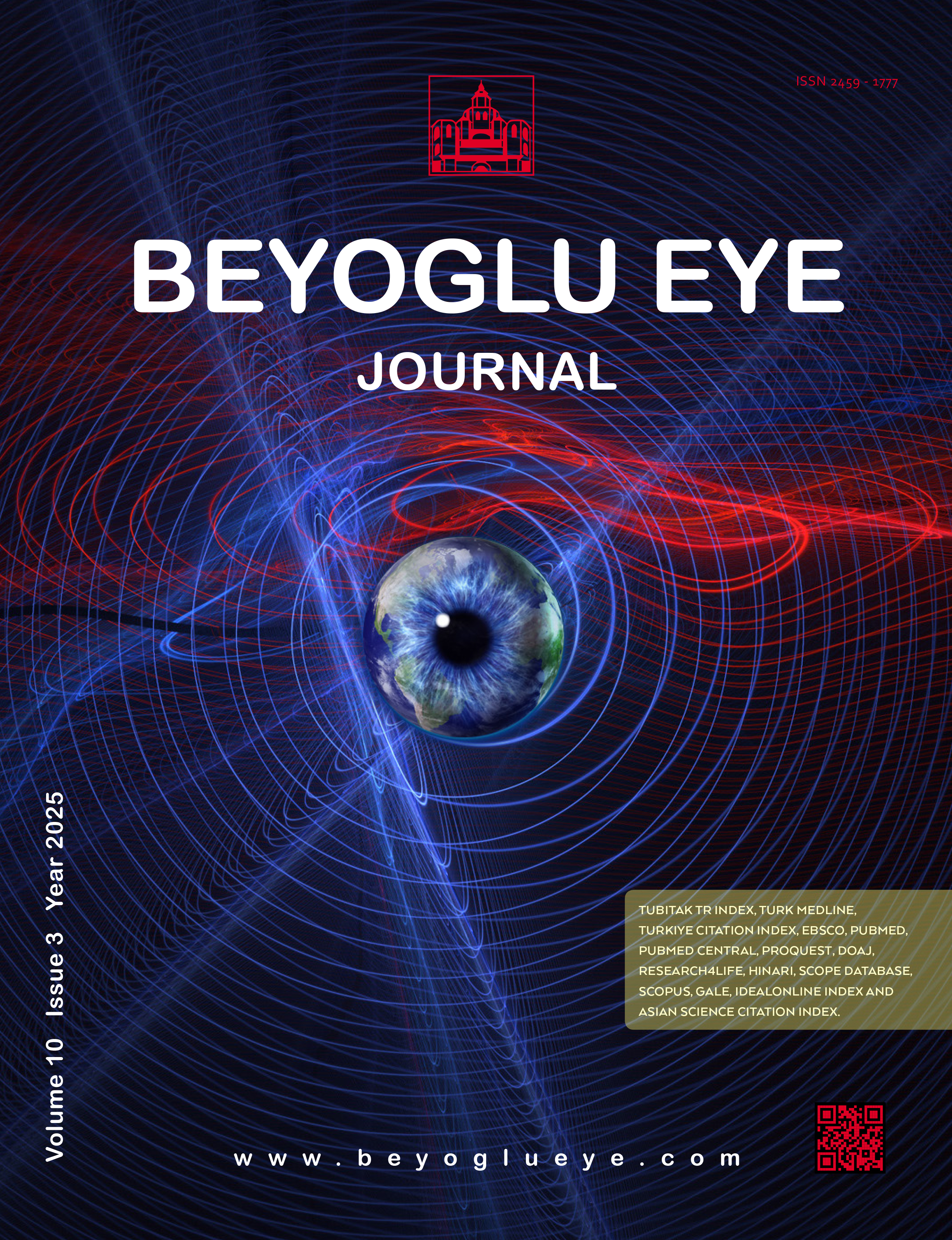
Interobserver and Intraobserver Agreements of the Detection of Demodex Infestation by in Vivo Confocal Microscopy
Ayse Yildiz Tas1, Burak Mergen2, Erdost Yıldız3, Betul N Bayraktutar4, Ekrem Çelik5, Afsun Sahin1, Ceyhun Arıcı61Department of Ophthalmology, Koç University Medical School, Istanbul, Türkiye2Department of Ophthalmology, University of Health Sciences, Basaksehir Cam and Sakura City Hospital, Istanbul, Türkiye
3Research Center for Translational Medicine, Koç University, Istanbul, Türkiye
4Department of Ophthalmology, Tufts Medical Center, Tufts University Faculty of Medicine, Boston, MA, USA
5Department of Ophthalmology, Faculty of Medicine, Tekirdağ Namık Kemal University, Tekirdag, Türkiye
6Department of Ophthalmology, Cerrahpasa Medical Faculty, Istanbul University-Cerrahpasa, Istanbul, Türkiye
OBJECTIVES: The purpose of the study was to determine interobserver and intraobserver agreement, repeatability, and intrasubject variation of the detection of Demodex infestation in eyelids of blepharitis patients using in vivo confocal microscopy (IVCM).
METHODS: Eighty-three eyes of 42 blepharitis patients were included in the study. All eyelids were evaluated from tempo-ral to nasal with IVCM using section mode and 10 lashes with their follicles were imagined, and every image with suspicion of Demodex infestation was recorded. Two experienced and two inexperienced ophthalmologists were masked for the diagnosis and interpreted the IVCM images regarding the presence of Demodex infestation with a 3-week interval. Inter-observer and intraobserver agreements were calculated with Cohens kappa and its variant statistics between and within experienced observers and between inexperienced observers.
RESULTS: While average sensitivity for the diagnosis of demodicosis in IVCM images was 83.35% for experienced and 51.35% for inexperienced observers, the average positive predictive value was 88.6% for experienced observers and 91.05% for inexperienced ones. Interobserver agreement between experienced observers was moderate (κ = 0.529) and intraobserver agreements within experienced observers were perfect (κ = 0.918 for observer-1; κ = 0.958 for ob-server-2). Interobserver agreement between inexperienced observers was poor (κ = 0.162) and intraobserver agreements within inexperienced observers were fair (κ = 0.427 for observer-3; κ = 0.475 for observer-4).
DISCUSSION AND CONCLUSION: The sensitivity, interobserver and intraobserver agreements in IVCM image analysis for the detection of Demodex infestation were highly associated with the clinical experience on IVCM imaging. In the hands of an experienced clinician, IVCM could be reliable for the diagnosis of ocular demodicosis.
Keywords: Blepharitis, demodex, in vivo confocal microscopy, interobserver agreement, repeatability.
Manuscript Language: English









